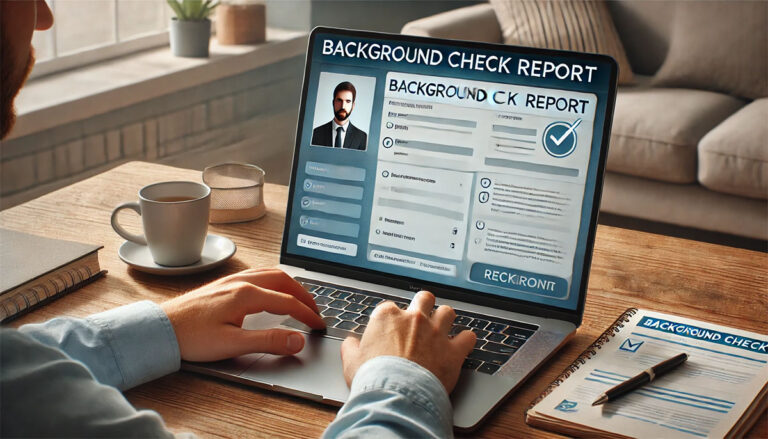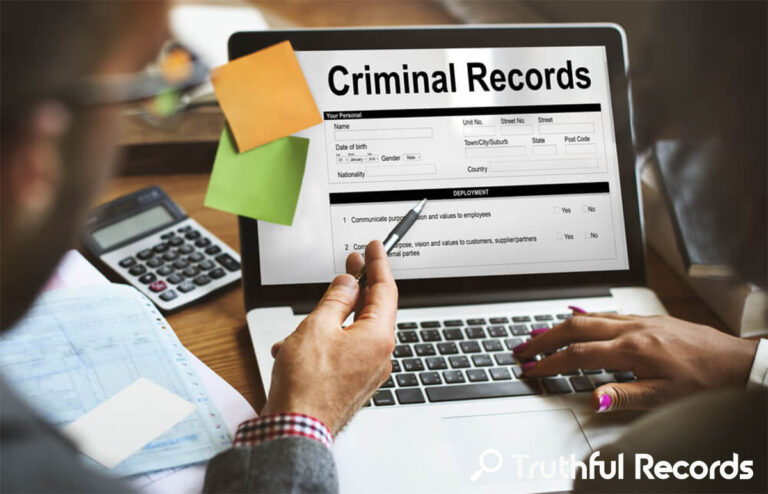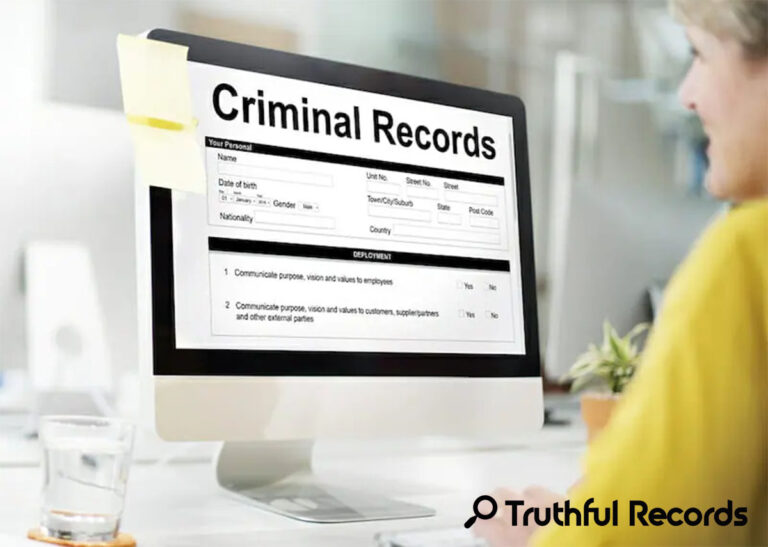Understanding Background Check Accuracy: Your Complete Guide
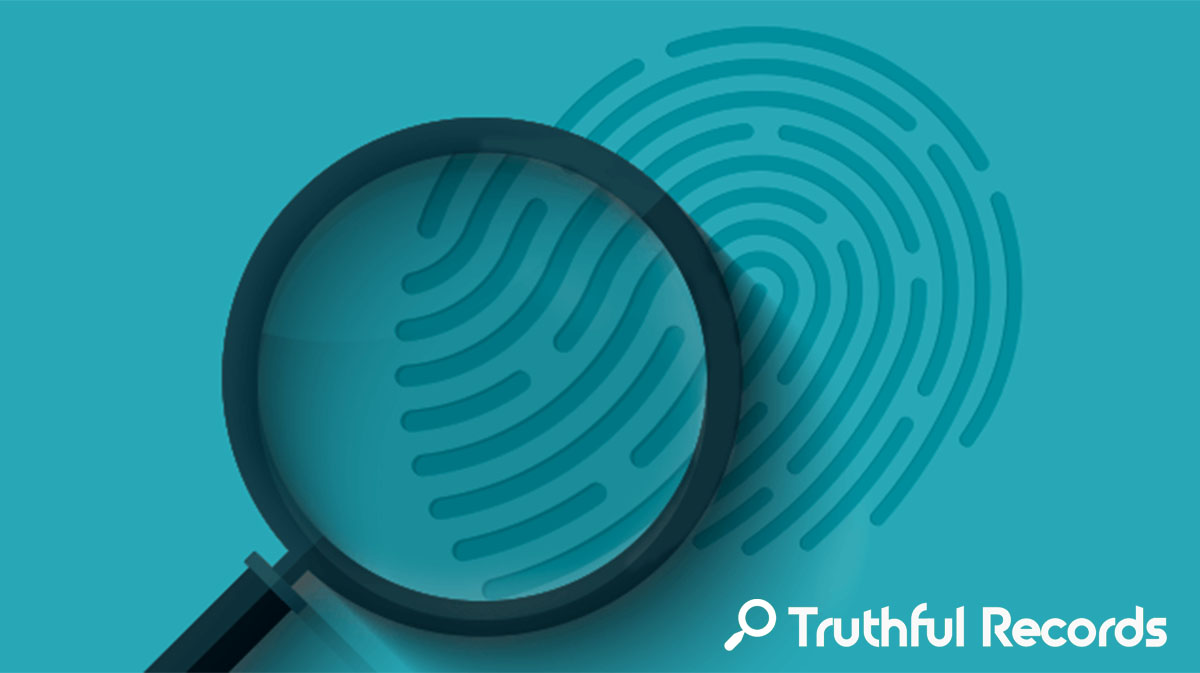
Can you believe that 1 in 3 background check reports has at least one mistake? I’ve spent years looking into how accurate these reports are, and trust me, these errors can cause some serious problems! Just recently, a big background check company had to fork out $6 million in settlements for reporting wrong info. In this guide, I’m going to show you exactly what affects the accuracy of your background check and how to make sure your info is spot on. Want to dig deeper into your own background check? Check out this personal background check guide. Let’s jump into what can make or break the reliability of your background check!
Common Background Check Errors
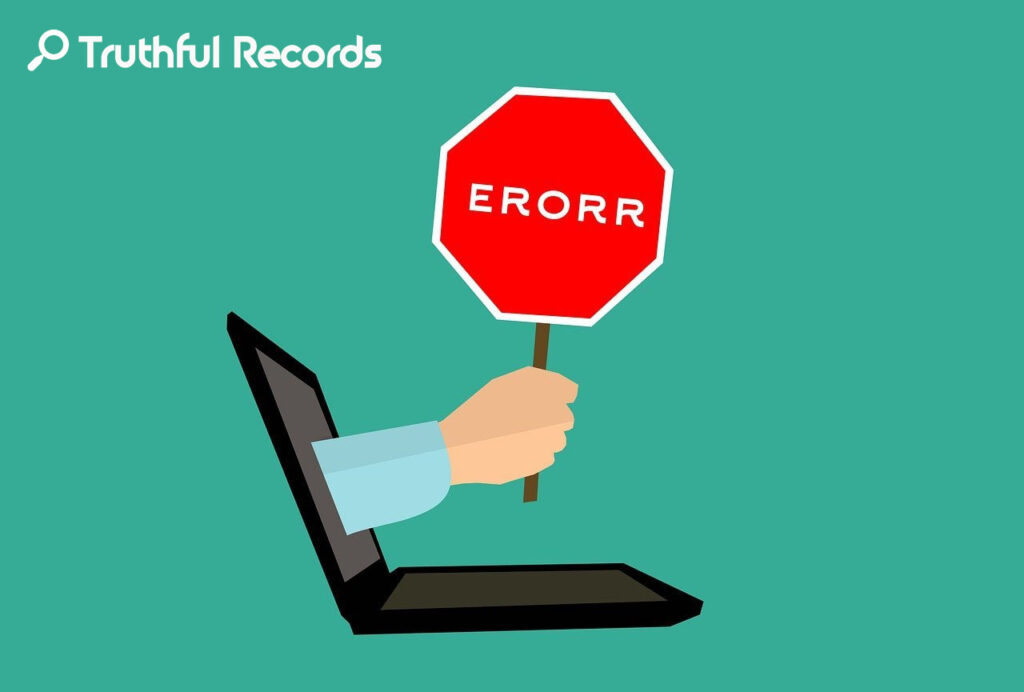
Background checks are meant to provide accurate and reliable information, but let’s face it—errors happen! Whether it’s a mistake in data entry or a case of mistaken identity, these issues can seriously affect the results of your background check. Let’s break down some of the most common errors and how they can mess things up.
Data Entry Mistakes
Data entry errors are one of the most common issues in background checks. Even though these reports are supposed to be thorough, mistakes slip through the cracks sometimes. Here’s how they happen:
- Input error types: It might sound simple, but sometimes the wrong info is just typed into the system. This can include typos, incorrect dates, or names being entered wrong. You’d be amazed at how one wrong keystroke can mess up a whole background check! For example, a wrong birthdate or a misspelled name can cause big issues.
- Cross-referencing issues: Background check systems often pull info from multiple databases and sources. If those sources aren’t cross-referenced properly, you can end up with conflicting or incomplete info. It’s like trying to put together a puzzle with missing pieces—you end up with a picture that doesn’t quite make sense.
- Manual vs automated entry: While automated systems can speed up the process, human mistakes still happen. If someone is manually entering data, even the most careful worker can make a mistake. Automated systems are designed to minimize errors, but they’re not foolproof either. Sometimes they misinterpret data, leading to inaccurate reports.
Identity Mix-ups
Identity mix-ups can be a major headache! When someone else’s information gets attached to your name, it can throw everything off. Here’s why this happens:
- Name confusion: If you have a common name, you might get lumped in with someone else who has a similar name. Background check systems are great, but they can’t always tell the difference between people who share the same first and last names. This is especially true if they don’t have access to enough additional identifying information like your full address or Social Security number.
- Similar profiles: Sometimes, people with similar profiles (same name, similar birth date, or even similar job history) get their records mixed up. This happens a lot with name-based searches. If someone else with similar credentials or criminal records exists, their info could get tangled up with yours. It’s like sharing a name with a celebrity, but in this case, it’s not so fun!
- Mistaken identities: This is when someone else’s criminal history, credit issues, or employment history gets tied to your name. Yikes, right? It’s one of the worst mix-ups because it can make it look like you’ve done things you haven’t! If someone with a similar name has a criminal record or bad credit, their info could end up on your report by mistake. Always double-check if you think your background check has gone rogue!
Outdated Information
Outdated information is another huge problem. Even though a lot of background checks pull from databases that are updated regularly, there are still delays and gaps in the system. Here’s why it’s a big deal:
- Update frequencies: Not all databases update in real time, and this can cause a delay in reporting. If a new job or an updated criminal record isn’t in the system yet, you might not see the most recent info on your background check. Depending on how often the data is updated, you might find yourself dealing with outdated results.
- Data source timing: Some background checks pull info from sources that aren’t updated consistently. For example, court records or credit reports might be updated on different schedules, which can result in information being reported that’s no longer relevant. This is especially true for things like court cases or financial records.
- Information lag periods: There’s always a lag between when something happens and when it shows up on your background check. If you recently paid off a debt or had a case dismissed, it might take a little while for that information to reflect on your report. During this lag time, outdated or incorrect info could show up in your background check, potentially causing problems!
Factors Affecting Background Check Accuracy

Background checks are only as good as the information they’re based on. So, if you want to understand why certain details might be wrong or outdated, it’s important to know what goes into these reports. From where the data comes from to how it’s collected and reported, several factors can influence how accurate your background check ends up being. Let’s break it down!
Data Source Quality
Not all data sources are created equal. Some provide reliable, up-to-date information, while others might be outdated or incomplete. Here’s what you need to know about the sources that feed into your background check:
- Primary sources: These are the gold standard! Primary sources are the original, most reliable places where data comes from. For example, court records, government databases, and official criminal records are considered primary sources. Since these are usually updated and verified by the original institutions, they tend to be the most accurate.
- Secondary databases: Secondary sources are databases that gather information from multiple places but aren’t always the most up-to-date or directly from the original source. These could include things like credit reporting agencies or commercial data brokers. While they may offer valuable insights, the data they pull may not always be fully accurate or current. These sources often rely on other databases to get their info, so there can be gaps or errors.
- Information verification: When a background check is run, companies may cross-check details with multiple sources to verify information. The quality of these sources matters! If the background check company doesn’t take extra steps to confirm the accuracy of the data, mistakes can slip through. That’s why it’s crucial for companies to use reliable and trusted sources.
Collection Methods
How data is gathered can significantly affect the accuracy of a background check. If the data is gathered poorly or isn’t thoroughly checked, it can lead to inaccurate results. Here’s how collection methods play a role:
- Data gathering processes: The way information is collected affects its accuracy. Some background checks may rely on automated systems that pull information from various databases, while others may manually verify details. Automated systems are faster but can sometimes make mistakes when matching up data, while manual checks can take longer but may catch more errors.
- Verification procedures: After gathering the data, background check companies need to verify the information. If they fail to cross-check facts or double-check the sources, you could end up with outdated or incorrect details on your report. A proper verification procedure ensures that the information is as accurate as possible, which is why it’s important to choose a thorough service.
- Quality control measures: This is where background check companies can really make a difference. Quality control involves reviewing the data before it’s reported. Background check companies should have processes in place to catch any errors in the info they pull from sources, ensuring the final report is as accurate as possible. Without strong quality control measures, background check accuracy can suffer.
Reporting Timeframes
How quickly and regularly data gets updated is a huge factor in the accuracy of background checks. Sometimes, things like court cases, credit history, or even employment records take time to show up, and delays can cause outdated or incomplete info to appear.
- Update schedules: Different sources update their data on different schedules. For example, court records might be updated more quickly than credit reports, meaning you might find outdated or incomplete data in your background check. Background check companies may not always pull from the latest available data if they don’t update their sources regularly.
- Real-time vs cached data: Some systems rely on real-time data, while others pull cached data that may be days, weeks, or even months old. Real-time data is the most accurate because it reflects the current status of your records. Cached data, however, can lead to inaccuracies since it may not reflect recent changes like payments made, charges dismissed, or recent employment history updates.
- Reporting delays: Data reporting can experience delays for various reasons—whether it’s a backlog at a courthouse or a delay in updating employment records. This can result in your background check showing outdated or incomplete information, especially if it’s pulled from secondary databases or sources that don’t update immediately.
Different Provider Accuracy Rates

When it comes to background checks, not all services are created equal. Some providers are more reliable than others, depending on how thorough they are and where they get their data from. Let’s take a look at how different types of background check providers measure up when it comes to accuracy.
Professional Background Check Companies
Professional background check companies are the go-to choice for businesses and individuals looking for in-depth, reliable reports. These companies specialize in conducting thorough background checks and typically adhere to industry standards to ensure the highest level of accuracy. Here’s how they stack up:
- Industry standards: These companies are held to certain standards set by the Fair Credit Reporting Act (FCRA), which governs how background checks are conducted. They’re also often members of industry organizations that ensure they meet specific guidelines for accuracy and fairness. This means you can generally trust that the results are legit, though no company is immune to occasional errors.
- Verification processes: Professional background check services typically have more rigorous verification processes than instant or self-check services. They use multiple data sources and cross-reference the information to ensure it’s accurate. Some will even reach out to employers, schools, or other entities directly to confirm details, which adds a layer of reliability to the results.
- Quality guarantees: Many professional background check companies offer guarantees for the accuracy of their reports. If there’s an error, they’ll often work to correct it quickly. Additionally, some services provide customer support to help you resolve any discrepancies, giving you peace of mind that your report is as accurate as possible.
Instant Background Check Services
Instant background check services are all about convenience. They allow you to get a background check report quickly, often within minutes. But just because they’re fast doesn’t mean they’re always the most accurate. Here’s why:
- Limitations: Instant check services typically pull from public databases and online records, which can sometimes be incomplete or outdated. While they might give you a quick snapshot, these services often miss key details, like employment verifications or up-to-date criminal records. The fast results come at the cost of in-depth accuracy.
- Accuracy concerns: Since instant services use limited sources and don’t always verify the information with the original provider (like the courts or employers), they can sometimes report outdated or incorrect data. You might see old addresses, expired records, or even incorrect names if the system has any mix-ups in matching records.
- Data sources used: Instant background check providers typically pull data from online public sources, secondary databases, and commercial data brokers. While this might sound convenient, it doesn’t always reflect the most up-to-date or complete information. In other words, the accuracy of these services can vary significantly depending on what’s available in their databases at the time of the search.
Government Database Searches
Government database searches, which are usually conducted by official agencies or legal professionals, are known for being highly accurate because they pull directly from government-maintained records. However, even these come with some caveats:
- Official record accuracy: Government databases are often the most accurate, since they’re maintained by official entities like courts, the DMV, and the IRS. When a background check uses government records, you can typically trust that the info is up-to-date and verified. That said, human error still exists—so don’t assume everything is perfect!
- Update frequency: While government databases tend to be accurate, the frequency with which they’re updated can vary. Some records (like criminal convictions) might be updated quickly, while others (like property ownership or court cases) might take longer to reflect changes. This means there could be a delay between when something happens and when it shows up on a government database.
- Access restrictions: Not all government databases are available to the public. For example, certain criminal records or court cases may require specific permissions or can only be accessed by authorized personnel. This means your background check might not include certain government records unless you have special access or the search is performed by someone who does.
Identifying Inaccurate Information

When it comes to background checks, spotting inaccurate information is crucial. Incorrect details can affect your job prospects, housing applications, and even your credit! But don’t worry—there are ways to identify red flags and ensure your records are accurate. Let’s break down how you can catch errors before they cause issues.
Red Flags
There are some common warning signs that should immediately make you take a closer look at your background check results. Here’s what to watch out for:
- Common indicators: If you see anything that doesn’t quite line up with your records, that’s a red flag. Look for discrepancies like wrong names, incorrect dates, or mismatched addresses. These are often signs that something’s been entered wrong or that your information has been confused with someone else’s.
- Warning signs: Be on the lookout for items that seem out of place. For example, criminal records that don’t match your past, loans you didn’t take out, or job positions you never held are big warning signs. These can indicate either errors in data entry or a mix-up in your identity.
- Verification points: If you’re unsure about something, verify it! Look at key points like your date of birth, past addresses, and employment history. If anything doesn’t seem accurate, take action to get it corrected. Remember, you have the right to dispute errors and get them fixed!
Self-Assessment Methods
You don’t always need to rely on someone else to catch mistakes in your background check. By doing a self-assessment, you can spot errors early and take action to correct them. Here’s how:
- Review procedures: Regularly review your background checks, especially before applying for new jobs or moving. You’d be surprised how much small errors can slip through the cracks. Go over the details carefully, looking at things like addresses, job titles, and personal information. It’s much easier to catch mistakes when you’re familiar with your own records.
- Cross-verification: Cross-check your background check with other records you have, like tax forms, previous job applications, or official documents. This will help you see if anything doesn’t match up. If you spot discrepancies, it’s time to follow up with the relevant authorities or companies to get them corrected.
- Documentation needs: If you find an error, gather any supporting documents you have to prove the correct information. This might include things like your employment records, bank statements, or utility bills. Having the right documentation will make it easier to correct any mistakes and ensure your background check is accurate.
Professional Review Services
If you’re concerned about the accuracy of your background check or simply want an expert to review it, there are professional services that can help. Here’s how they can assist:
- Expert analysis: Professional background check services offer expert analysis to catch errors that might go unnoticed. They know exactly what to look for, and they’re trained to spot discrepancies that could be hard to identify on your own. They can also help you understand your background check report and what’s being looked at.
- Verification services: These services don’t just point out mistakes—they verify information directly with sources. They’ll check with employers, schools, and government agencies to confirm that your records are correct. This is particularly useful if your background check includes things like job history or criminal records that require extra confirmation.
- Quality assurance: Professional review services also offer quality assurance to ensure your background check is accurate and thorough. They will help you understand what data was used, how it was gathered, and if there’s anything missing or incorrect. This extra layer of attention helps ensure that your background check is as reliable as possible.
Correcting Background Check Errors

If you’ve found errors in your background check, don’t panic! Mistakes happen, and the good news is, you can take steps to get them fixed. Whether it’s a simple typo or a more serious mix-up, here’s a guide on how to go about correcting any errors in your background check.
Dispute Process
The first step in correcting an error is going through the dispute process. This is how you can officially challenge any incorrect information and get it fixed.
- Filing procedures: Start by filing a dispute with the company that ran your background check. This can often be done online or over the phone. When you file your dispute, make sure to be clear about the error and provide any details that will help them investigate. You’ll need to request a formal review of your report.
- Timeline expectations: Once you’ve filed a dispute, expect the company to investigate the issue. According to the Fair Credit Reporting Act (FCRA), they’re required to investigate within 30 days. If they find the information is incorrect, they’ll correct it. If they don’t respond within that time frame, it’s a good idea to follow up.
- Required documentation: To support your dispute, you’ll likely need to provide documentation showing that the information is incorrect. This could include things like pay stubs, court records, or other official documents. The more evidence you provide, the smoother the process will go!
Information Updates
Once the dispute process has cleared up any errors, it’s time to make sure your information is updated properly. Here’s how to handle that:
- Correction methods: After you’ve disputed the error, the background check company will either correct it directly or request updated information from the original source (like the court or your previous employer). If the correction is made, the updated information should be reflected in your background check report.
- Source updates: In some cases, the error might be coming from the original source, like a local courthouse or a credit bureau. If that’s the case, you’ll need to work with them to get the correct information updated. It may require contacting the specific agency or department that holds the records to get things straightened out.
- Verification steps: Once the update is made, you should verify the changes to make sure everything is correct. Request an updated background check report to confirm that the mistake has been fixed and the new info is reflected accurately.
Follow-up Procedures
Even after you’ve corrected the errors, it’s important to stay on top of your background check to ensure that everything stays accurate in the future.
- Monitoring changes: After you’ve had an error fixed, keep an eye on your records to make sure the issue doesn’t come back. Sometimes, data errors can resurface, so it’s a good idea to check your background check periodically—especially if you’re applying for jobs, housing, or loans.
- Confirmation process: If you’re unsure whether the changes were successfully made, follow up with the background check company. You can request confirmation in writing or check your updated report to make sure everything is fixed. It’s always better to double-check than to miss an important correction!
- Record maintenance: Keeping your records up to date is an ongoing process. If you move, change jobs, or make major life changes, make sure those updates are reflected in your background check. You can periodically check your report to ensure everything stays accurate and that no new errors pop up.
Preventing Future Inaccuracies

Once you’ve corrected any errors in your background check, you want to make sure those mistakes don’t pop up again. The key to preventing future inaccuracies is staying proactive and on top of your personal records. Here’s how you can ensure your background checks stay accurate in the future.
Proactive Monitoring
Keeping an eye on your personal data is essential for spotting inaccuracies before they become a problem. Here’s how you can stay ahead of the game:
- Regular checks: Make it a habit to regularly check your background check or credit report, especially before applying for new jobs, housing, or loans. This way, you can catch errors early and fix them before they cause any issues. Checking your background check every few months can help you stay on top of things.
- Alert systems: Many services offer alerts that notify you when there’s a change to your background information or credit report. These alerts are great for keeping track of any new entries or updates to your records, especially if they’re unexpected or inaccurate. Signing up for these notifications can help you stay informed and prevent surprises.
- Information tracking: Keep track of key personal information like your addresses, employment history, and other important records. By having an organized system to track your data, you’ll be able to spot discrepancies more easily when they arise. Consider using a personal finance app or digital document manager to keep everything in one place!
Documentation Management
Keeping your documentation organized and up-to-date is crucial for making sure your background check stays accurate. When you need to dispute something or verify a record, having everything on hand makes the process smoother. Here’s what to do:
- Record keeping: Keep copies of important documents like your pay stubs, tax returns, employment records, and court papers. If you need to prove something in your background check, having these documents ready will make the dispute process faster and easier.
- Information updates: Whenever you update personal details (like changing your address or getting a new job), make sure to update those details with relevant agencies, credit bureaus, and other institutions. If your info isn’t updated in the system, it could lead to inaccuracies down the line.
- Verification files: Hold on to any official documents that verify your information. This could include things like court orders, proof of employment, or any other formal verification. If a mistake arises, these documents can serve as proof to help resolve the issue quickly.
Professional Assistance
Sometimes, preventing future inaccuracies might require extra help, especially if you’re dealing with complex issues or just don’t have the time to monitor everything yourself. Here’s how professional assistance can help:
- Expert services: There are professional services that specialize in background check monitoring and corrections. These experts know how to spot errors and have access to the right channels to get things fixed. They can help you keep your records in check and ensure everything stays accurate.
- Legal support: If you’ve run into ongoing issues with inaccurate records, legal support might be necessary. An attorney who specializes in consumer protection laws or background checks can help you navigate complicated disputes, especially when dealing with issues like identity theft or wrongful records. They can provide you with the legal support you need to get things fixed.
- Ongoing maintenance: Some services offer ongoing maintenance for your background checks and credit reports. They’ll keep track of your records, monitor for inaccuracies, and help ensure everything is up to date. This is a great option if you want to make sure you’re always covered without having to constantly manage it yourself.
Conclusion
Making sure your background check is accurate is super important for protecting both your personal and professional life. By understanding what affects accuracy and knowing how to spot and fix mistakes, you can keep your background info in check. Don’t forget to regularly check your records and take action if something seems off. Stay on top of your background check today so you can avoid any problems down the road!


